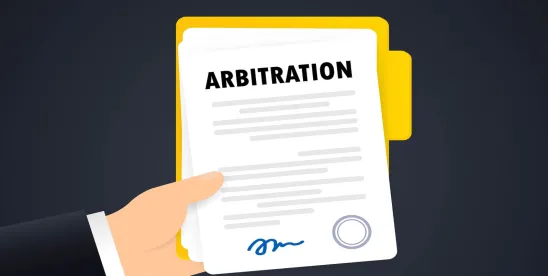The Fifth Circuit ruled that Baker Hughes Saudi Arabia and Dynamic Industries, Inc., could be compelled to arbitration in a forum that no longer exists. In doing so, the court ruled that the parties’ “dominant purpose was to arbitrate generally,” which mandated that the court compel arbitration, if at all possible.
The underlying dispute between Baker Hughes and Dynamic revolves around a subcontract in which Baker Hughes agreed to supply materials, products and services for an oil and gas project performed by Dynamic in Saudi Arabia. Baker Hughes says it has performed all its obligations, but Dynamic failed to pay the more than $1.3 million it owes to Baker for those services.
The subcontract contemplated arbitration in two ways: First was the way Dynamic had the unilateral right to elect for arbitration of any unresolved dispute in Saudi Arabia, and second was if the alternative course of arbitration allowed any claim to be arbitrated according to the Arbitration Rules of the Dubai International Financial Centre-London Court International Arbitration (DIFC-LCIA). In 2021, the administrating institution of the DIFC-LCIA rules, the DIFC Arbitration Institute (DAI), was abolished. The Dubai International Arbitration Centre (DIAC) was created as a replacement for the DAI.
The district court ruled that it was powerless to compel arbitration because the forum to which it would compel did not exist. The Fifth Circuit disagreed and reversed and remanded to the district court to consider “whether the DIFC-LCIA rules can be applied by any other forum that may be available — including the LCIA, DIAC, or a forum in Saudi Arabia — consistent with the parties’ objective intent.”
The court covered considerable ground in its opinion. First it considered whether the subcontract language allowing DIFC-LCIA arbitration was a forum-selection clause and determined it was not. Rather it was an election to arbitrate according to the DIFC-LCIA rules, not necessarily, in the forum of the now-non-existent DAI.
In doing so, the court departed from many of its sister circuits by declining to find that the invocation of the DIFC-LCIA rules constituted a manifest desire to arbitrate in the DAI forum. The court stated that it still had “lingering doubts” regarding that approach.
Next, the court considered whether a forum was really unavailable for purposes of arbitrating under the DIFC-LCIA rules. Stating it differently, the court framed this novel question as “whether a designated forum remains available where a functionally identical successor forum exists.” The court found that arguably the parties’ designated forum still exists because the new forum adopted nearly all the same rules as its predecessor.
However, the court declined to rule on this question and turned to its central ruling: Even if the arbitration provision is a forum-selection clause it is not integral to the parties’ agreement. The court found that ultimately the parties’ agreement evinced that “the parties’ primary intent was to arbitrate generally.” As such, the district court should have compelled arbitration in a different forum or appointed a substitute arbitrator consistent with that intent. While the court’s ruling lives in the unique circumstances presented by the restructuring of the DIFC-LCIA arbitration rules and fora, the court rested its decision on familiar ground. Namely that where the “parties’ dominant purpose” is to arbitrate, a court should do what is in its power to effectuate that purpose, even if that means compelling arbitration to a forum not expressly stated by the parties’ agreement.
Jason Tullos also contributed to this article.




 />i
/>i


